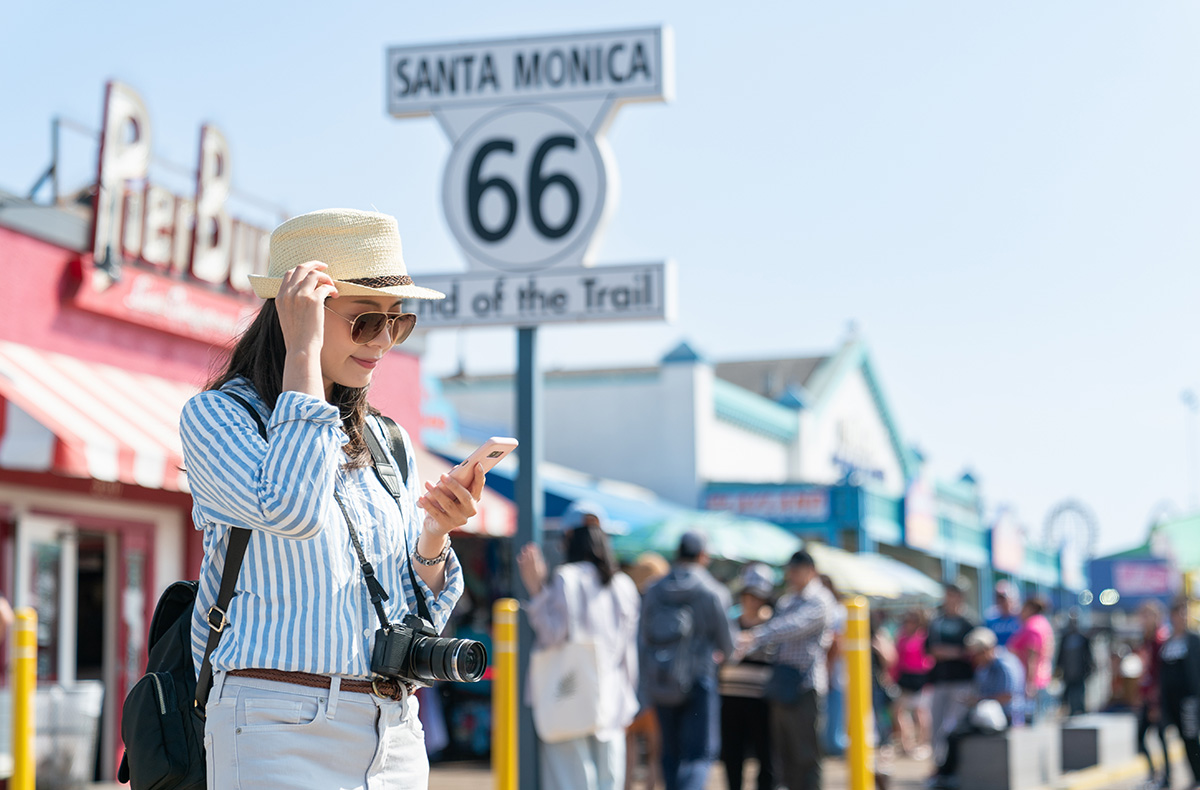Ask someone to do an impression of a California accent and you’re likely to get a laidback “Fersure, dude,” with perhaps a shaka hand sign thrown in for good measure. But does anyone in California actually even speak like this? Fersure, dude. Not everyone though, and the standard baseline “California accent” is quite moderate and more akin to “General American” than anything extreme.
Due to the state’s massive size and population diversity, however, this “General American” gets revamped in a myriad of ways in different parts of the state. These linguistic variations, coupled with California’s ubiquitous and seemingly never-ending slang terms, create speech variations that extend far beyond just NorCal versus SoCal.
And speaking of California slang, the presence of Hollywood and the state’s massive music scenes mean that all those variations of the California accent and slang get immortalized and broadcast to the world. Not only did slang like “hella” and “dude” originate in California, the state also played a major role in English’s prevalent use of the word “like” as a filler word, as in, “That burrito was, like, so spicy.”
Standard Californian Accent
If you’re going to California and expecting everyone to be talking like Michaelangelo from the Ninja Turtles, you’re going to be disappointed. There may be a few more “radicals” and “brahs” sprinkled into normal conversation, but the standard Californian accent is basically the standard American accent. That means it sounds like a national newscaster or someone from the Midwest, i.e., the plains rather than the waves.
The laidback stereotypical accent did not emerge from thin air, however. California surf and skate culture have given some towns across the state, like Venice Beach, Santa Cruz, and Huntington Beach, their own slower, more mellow way of speaking where you are sure to hear plenty of “dudes.”
Vocal Fry
Another interesting linguistic phenomenon associated with California is vocal fry, or laryngealization. Vocal fry is a low, scratchy/creaky sound that can be heard in men’s and women’s voices at the end of sentences. Speaking in this way, which requires an irregular tightening of the vocal cords, is usually a learned habit and can be picked up from California celebrities and influencers. Instead of smooth speech, the sound comes crackling and popping out at the end.
Cultural Contributions
California is renowned for its diversity, and different social and cultural groups have made an incredible impact on standard California speech. It is by far the most populous state, and many of these residents have roots that stretch across the globe. You are probably familiar with San Francisco’s Chinatown, but did you know about LA’s Little Persia (“Tehrangeles”) or Stockton’s Little Manilla? These are but a few of the communities that have helped give California not one, but many accents.
One special multicultural linguistic tip of the cap was given by none other than the Los Angeles Dodgers baseball team itself, who saluted the team’s Latino fanbase and created a popular ballpark treat known as the “Doyer Dog,” a hot dog smothered in cheese, chili, and jalapenos. The name itself comes from the Spanglish word for the beloved baseball team, “Los Doyers.”
California Slang to Know
Cali
This one is to be avoided, as the only people who call it “Cali” are not from California. Similar to how people from Atlanta would never call the city “Hotlanta” and New Yorkers don’t say “I live in the Big Apple,” saying “Cali” will mark you as a tourist or outsider.
Yeah no
To keep things simple, just remember that this phrase (like its diametric opposite below) means its second word. “Yeah no” means no. Adding the “Yeah” at the beginning gives the answer a bit more balance, as though the speaker had carefully weighed both possibilities and arrived at no.
No yeah
This means yeah. “Do you like these fish tacos?” “No yeah, they’re great.”
The industry
This is the incredibly broad entertainment industry, specifically in Los Angeles. Actors, agents, producers, set designers, sound engineers, etc. all work in “the industry.”
Stoked
You are stoked if you are extremely excited, i.e., hyped, amped, psyched, etc. “He said Mavericks was totally firing – double overhead monsters and just totally glassy. Stoked!”
Tech bro
This is a term applied somewhat disparagingly to young males who work in the big tech industry, especially in Silicon Valley or the Bay area. The “brogrammer” stereotype drives a Tesla and wears Patagonia.
How to Speak with a California Accent
If you are a native English speaker without a very pronounced accent (like from NYC or Mississippi), then you probably already kind of do. The keys are to make your vowels as neutral as possible, your pace slightly slower and then get scratchy at the end if you want to throw some vocal fry in there. You’re killin’ it, brah!


